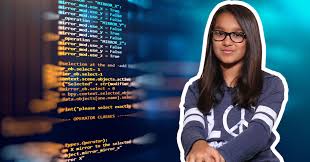Scroll through Samaira Mehta’s Instagram and you’ll see that she is a lot like other kids her age. She posts about having a lemonade stand, going swimming and doing the “In My Feelings” dance challenge.
But she also stands out from other 10-year-olds — Mehta is CEO, founder and inventor of CoderBunnyz, a board game that teaches players as young as 4 basic coding concepts. Players draw and move their bunny piece along the board with the goal of eating carrots and hopping to their final destination.
“CoderBunnyz will basically teach you all the concepts you ever need in computer programming,” Mehta tells CNBC Make It. “There’s the very basic concepts like sequencing and conditionals to more advanced concepts like loops, functions, stack, queue, lists, parallelism, inheritance and many others.”
Mehta says she first conceptualized the board game when she was “about 6½, maybe 7,” after her father, an engineer who serves as an official advisor for the company, started teaching her how to code. As she researched learning materials for first-time coders, Mehta noticed there was an opening in the market for a product that helped young people pick up programming.
She started by sketching how she wanted the game to be designed. Then, with the help of her family, she connected with graphic designers and game manufacturers in China and New Zealand. After exchanging dozens of emails, Mehta settled on a product that she says she’s very proud of.
“My family is very much involved in my business,” she says. Her mother oversees marketing and social media for CoderBunnyz and her little brother tests the games.
Since inventing CoderBunnyz, Mehta also invented a second game called CoderMindz, a coding-based artificial intelligence board game that teachers basic AI concepts using the Java programming language.
“I’m really passionate about coding,” says the budding entrepreneur. “I want the kids to be the same way, because coding is the future and coding is what the world will depend on in the next 10 to 15 years. So if kids learn to code now, [when] they grow up they can think of coding maybe as a career option.”
So far, Mehta says her company has generated about $200,000 in revenue since April 2018 and sold about 6,000 games. She says she is reinvesting that money in the company, saving for college and donating to charities that address homelessness in her community.
At first, Mehta sold the board games through her website and stored the games in her garage.
“We used to pack every order we got,” she says. “And when it started building up, and we started getting more orders, we were not able to fulfill that many, so we were seeing if we could get it on Amazon, and luckily within almost just the first year, we got it on Amazon.”
Today, Mehta has a team that helps package the games and Amazon helps fulfill shipping.
The business venture has taken Mehta to schools, libraries and companies like Facebook, Microsoft and Intel, where she has held workshops for employers and their kids about how to get young people involved with coding.
But it was her trip to Google, and the opportunity to meet Google’s chief cultural officer, Stacy Sullivan, that left the strongest impression on the 10-year-old. “She said if I grew up I could probably work at Google if I like. And then she also said ‘Oh but you’ll probably have your own company by then,'” says Mehta. “She inspired me to work harder and it was just a great moment in my life.”
Mehta has also gotten words of encouragement from former first lady Michelle Obama, who wrote the girl a letter in 2016 offering her words of support. “It was really cool receiving a letter from her,” says Mehta. “She just told me to keep working harder and that I’m an inspiration to all.”
For now, Mehta is focused on making CoderBunnyz a success and doing well in school. She says her dream college is Stanford University, and that her dream job is being an entrepreneur.
“I would say I already have it now, because I am an entrepreneur,” she says. “But I want to expand on that and I want to become an entrepreneur that helps people and does good for the community.”
source:www.cnbc.com
